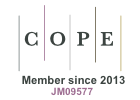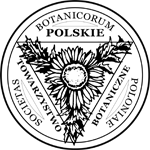Abstract
A field experiment in growing sweet basil was carried out in the period 2008-2010 in Fajsławice (Lublin region), on podzolic soil. The study evaluated the biometric traits of the plants, yield, the qualitative parameters of herbal raw material and weed infestation of the crop in dependence on growth simulators (Asahi SL, Bio-algeen, Titanit) and the forecrop (winter wheat or spring barley + white mustard cover crop). Plots without foliar application of the growth stimulators were the control treatment. Tillage, mineral NPK fertilization as well as mechanical and chemical weed control were typical for this plant species and consistent with the recommendations for herbal plant protection. A hypothesis was made that the application of growth stimulators would have a positive effect on basil productivity, raw material quality and weed infestation of the basil crop. It was also assumed that the phytosanitary and fertilizing effects of the cover crop would result in higher and qualitatively better yield compared to the cereal forecrop alone (winter wheat). The best quantitative parameters of sweet basil raw material and the highest reduction in air-dry weight of weeds in the crop were observed after the application of the growth stimulators. The forecrop - spring barley + a white mustard cover crop that is ploughed in - also had a beneficial effect on yield and weed infestation of the plant in question. The traditional crop protection method used in the basil crop, without the application of the growth stimulators, resulted in a lower plant height and a smaller number of shoots per plant. This caused higher weed infestation of the crop and a decrease in yield. The positive side of the non-application of growth stimulators was a better chemical composition of basil raw material. Asahi SL and Tytanit yielded the best growth and productivity of the basil plants.
Keywords
sweet basil; Ocimum basilicum L.; yield; biometric traits; essential oil; foliar fertilizers; forecrop






